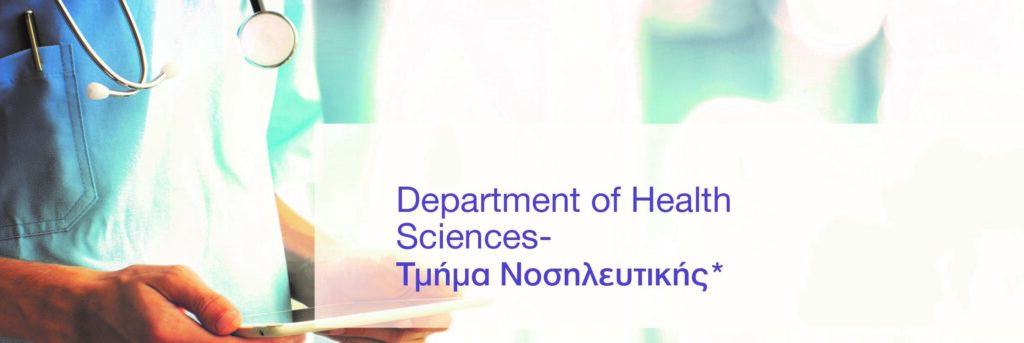
Nurses play a vital role in the effective operation of healthcare systems worldwide. Recognising their essential role, the World Health Organisation (WHO) designated 2020 as the International Year of the Nurse and the Midwife, while the Director-General of the WHO Dr Tedros Ahanom Ghebreyesus described nurses as the “backbone of every health system”. Specifically, according to the WHO, there is a universal need for 9 million more nurses in order to achieve universal health coverage by 2030. Considering the importance of the Nursing profession, Philips University decided to introduce the BSc in Nursing program of study, which is instructed in the English language, giving students from all over the world to study here and pursue a career in Nursing.
Objectives of the BSc in Nursing
Nursing as a profession utilizes knowledge derived from arts, sciences (physical, biological and behavioural), humanities and human experience. Nursing Science incorporates clinical competence, critical thinking, communication, teaching and learning, professionalism, caring and cultural competency. Nurses collaborate with other health disciplines to solve individual and community health problems. Nursing facilitates evidence-based practice, compassionate caring among its practitioners in response to emerging issues in healthcare and new discoveries and technologies in the profession.
The main objective of the BSc in Nursing program of study is to provide an evidence-based nursing education that enables students to meet changing health-care needs, working both on their own and in teams with other professionals along the entire continuum of health and illness.
The principal aim of the program is to train nurses by providing excellent knowledge and technical skills, supporting their critical thinking, compassion and vision development, as well as promoting the well-being for the individual, family and community.
More specifically, the program’s objectives are:

This program of study promotes the idea that nursing work needs to be systematically evaluated to show its efficiency and effectiveness, while it supports the need for nurses to be involved in research and decision-making in health policy, for which preparation begins in their initial education. Thus, this program of study promotes nursing competencies, sustainable and continuous education, integrated and patient-centered care, safety and quality of care services provided. The Nursing program aims to educate and develop responsible, scientifically-competent researchers, professionals and citizens who will act and lead guided by the principles of sustainability and social responsibility. On the other hand, it also aims to operate the University as a research and educational institution that provides value added to the sustainable development of the economy and of society in general.
The program offers enhancement of lifelong learning skills and personal development in order to contribute to society at large, regarding the major issues of promotion, protection, preservation and rehabilitation of citizens’ health.
Curriculum
The curriculum offers a wide range of knowledge and skills adapted to the context of modern times and society. The curriculum was based on the current Greek and European legislation and the current curricula of other European and non-European countries as well as the white papers and the declarations of the statements of a variety of organizations and entities, including the:
The BSc in Nursing program is fully compliant with the legal framework as well as recommendations and directives given by National and International Profession bodies (EU Directive 2013/55/EU) and is signaled by international cooperation/networking and benchmarking. The curriculum promotes critical thinking, evidence-based decision making, research, quality and safety. Specifically, the program includes the areas of Health and Safety, Health Economics, Work Psychology and Communication, Human Resource Management in Healthcare Settings, Management and Leadership and Addictions Counselling. In addition, during the program of study students will participate in a total of four clinical practices which are characterized by:
Learning Outcomes
The study of Nursing is designed to form the cognitive background, the skills and the attitudes with which graduates will be able to assess patients’ needs, provide appropriate evidence-based care and acquire the ability to evaluate the relevant healthcare outcomes.

More specifically, upon successful completion of the Nursing Studies, graduates will:
The learning outcomes of the BSc in Nursing is built around providing
The program also aids students to develop core nursing competencies including:
Teaching
Our greatest asset is our people. Philips University is founded on the most contemporary academic concepts and practices, being born out of the experience and expertise of internationally renowned academics. Each academic plays an important role in contributing to learning, teaching, research and support across the department to serve students’ needs.
Our teaching philosophy is focused on the individual’s needs, contemporary relevance and preparing students for a changing future. Philips University places great emphasis on an integrated student-centred approach in order to achieve and fulfil each student’s academic, personal and professional goals. The program aims to enhance students’ progression and employability by providing students with the necessary tools to further their studies and engage in research and/or secure a job in the Healthcare sector. Apart from our dedicated Careers Office, students have the opportunity to gain professional experience during the studies through their participation in four clinical practices.
The program of study, including its content and assessment, is developed according to the industry’s needs for enhancing students’ employability. Due to this, throughout the course emphasis is placed on labs work, group discussions, group projects, critical analysis, workshops based on reflection, case studies, role playing and presentations.